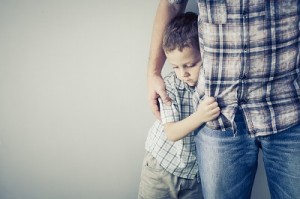Enjoy the Holidays With Your Special Needs Child
By Dr. Dawn O’Malley, Alexander Youth Network

There is a reason people often say the holidays are such a stressful time. Any time we have increased demands on our time, big changes in our daily routine and high expectations, we are at risk for increased stress. This is true even when the activities we are doing are meant to be fun.
For kids, particularly those who struggle with emotional and behavioral issues, the holidays are particularly stressful. Loud music, blinking lights, sugary foods and late nights can wreak havoc on their sensitive systems. There are some things you can do to limit the stress and make sure everyone has fun this holiday season.
- Keep your and your child’s daily routine as regular as possible. Keeping the same bedtimes, meal times and recreation times reduces stress. Our body and mind do best with routine. When we make lots of changes to our daily routine, it creates stress. This is true for your child’s medication as well. Do not stop giving medication over the holidays. Children’s emotional needs don’t take a break during vacation times.
- Limit the number of parties and events that you attend. Pick the events that are most important to you and your child and forego the rest. The more events, the greater number of demands for you and your child. Consider arranging child care so that you may attend an event that is most special to you without your child. If that isn’t possible, limit the amount of time that you spend at each event. For young children, even one hour at a party is a long time.
- Discuss holiday events and expectations before attending. Sit down with your child and explain the event you are attending and the behavior you expect. Keep it short and simple: “We are attending a holiday party at Aunt Dottie’s this evening. We will be there for two hours and we will have dinner there, then we’ll come home. I expect that you will play with your cousins in the family room, while I sit and talk with my sisters. Come and get me if your cousin Lou teases you.”
- Be prepared. Bring a special toy, book or game for your child to play alone or at your side during holiday events. Having something from home can make children feel more comfortable during potentially overwhelming situations. Allow your child to hide special toys out of reach, if people are coming to your house.
- Have an emergency escape plan. Be prepared to make a quick exit if you sense that your child is heading for trouble. Let your host know ahead of time that you may need to leave early to make leaving easier and ensure there aren’t any misunderstandings.
- Be realistic. The holidays are made even more stressful by the dozens of images of happy, care-free families we see on television ads this time of year. No family is without its challenges, be realistic about your expectations for the holidays. What does your family do best? Cook, sing, play? Plan your holidays around what you do most easily.
- You are your child’s greatest gift. Do you remember what gifts you received a year ago, two years ago, five? There’s a good chance you don’t. We tend to remember special moments shared with others, rather than things we received. Giving your child some of your individual attention and time stays with him or her much longer than a new toy.
Dr. Dawn O’Malley is a North Carolina Licensed psychologist and dlinical director at Alexander Youth Network, a leading provider of behavioral health care for children across North Carolina. Alexander Youth Network are experts in treating emotional trauma in children and helping kids cope with anxiety.
This blog was produced in partnership with Charlotte Parent. Click here for the original post and other parenting resources.













